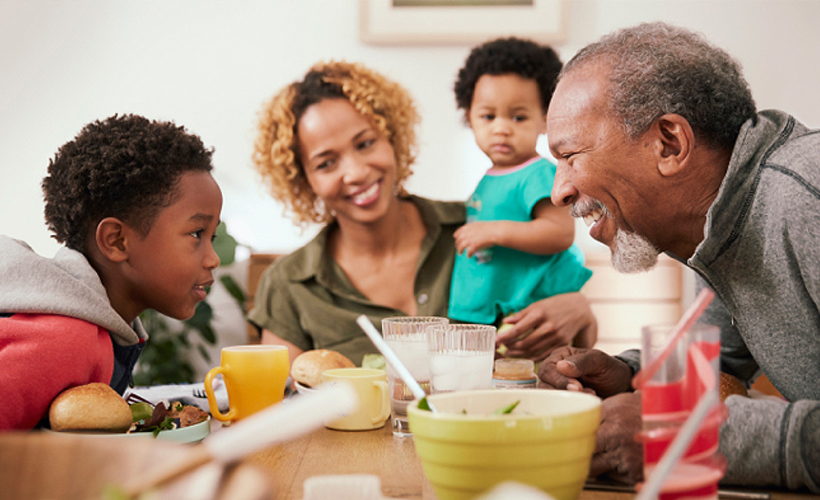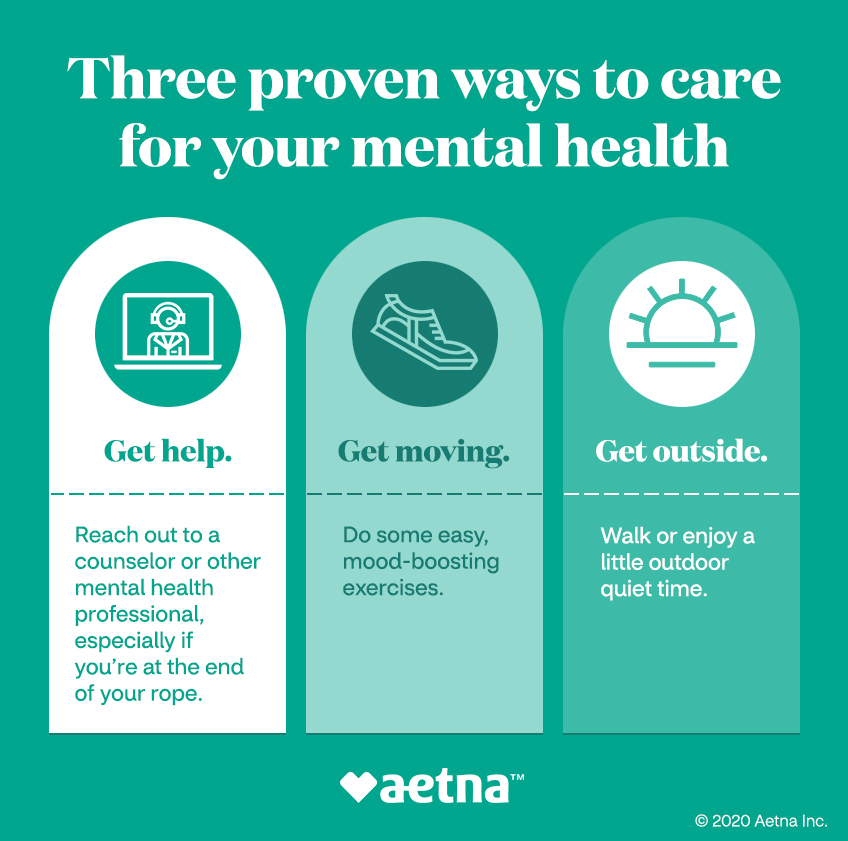Links to various Aetna Better Health and non-Aetna Better Health sites are provided for your convenience. Aetna Better Health is not responsible or liable for non-Aetna Better Health content accuracy or privacy practices of linked sites or for products or services described on these sites.
Caregiving during the pandemic
 By Kira Garcia
By Kira Garcia

With a part-time job and three young sons, Donna is busy. She is a health care worker, tending to patients on Medicaid every day. She is also a parent who is homeschooling her children, as well as a caregiver for one of her parents. Since the pandemic began, her days have been difficult and Donna is overwhelmed. “I’m anxious, to say the least,” she states.
Donna is not alone. Even before the pandemic, 36% of caregivers said they were very stressed. Many are burned out — so exhausted that it can be hard for them to give others their best. This can happen to any caregivers, including essential workers, parents and people caring for older or disabled family members.
There are many other stressful situations happening — school closures, financial issues and insufficient personal time — and it can be hard to practice self-care. More than 50% of caregivers say a decline in their own health makes it difficult to give care.
Luckily, there are tools available to help. The Health and Wellness Library on Aetna Better Health® website offers resources to support caregivers. They include healthy diet tips, new ways to stay fit and information on substance abuse and quitting smoking.
Aetna Better Health® can also help caregivers find mental health services. Vivien Weiss, a licensed mental health counselor, focuses on supporting caregivers. Since the pandemic began, she has been working online and is seeing many new clients who are starting therapy for the first time. “This is just an incredibly difficult time for so many people,” says Weiss. “If you’re nervous about telemedicine or therapy online, most people find that they get comfortable with it very quickly.” Weiss says that online therapy sessions are a game-changer for stressed caregivers. “I have a client who cares for her father, who has Alzheimer’s disease. She used to miss meetings often because no one else could care for him. But now she can call from home, and it’s so much easier.”
Weiss says that any of these signs should cause someone to seek help: a lack of patience, feeling isolated or changes in eating or sleeping. Limited self-care can cause people to drink more alcohol, fall back into bad habits or suffer frequent illnesses. If you experience any of these, a little self-care can help you stay healthy and put your mind at ease.
Counseling is also an important tool. Weiss says people are scared that seeking mental health care is a sign of weakness, but “I say it’s a sign of strength. Therapy is like going to the gym — you’re building emotional muscles to face what you’re challenged with.”
A counselor can help you identify the hardest issues and will listen to your story. They will also prepare you for the time between sessions. “We talk about what to do during the week, including deep breathing and remembering our conversations the next time you feel down so you don’t repeat painful patterns.”

Three proven ways to care for your mental health
Get help. Reach out to a counselor or other mental health professional, especially if you’re at the end of your rope.
Get moving.
Do some easy, mood-boosting exercises.
Get outside.
Walk or enjoy a little outdoor quiet time.
There are other self-care routines caregivers can try. Exercising for just 10 or 15 minutes can help boost your mood, and scientists have found that art can help soothe depression. Spending time outside is also good, especially if you have been stuck indoors because of the pandemic. A walk or picnic in the sun is even better if you can share it with friends at a safe social distance. There are many easy things you can do to bring a smile to your face.
For Donna, getting outside was a turning point. “As soon as the restrictions were lifted, I started to peek my head out, and slowly we have been reconnecting with friends, one family at a time. It helps me feel less alone, and it’s nice to talk and find out that other people are going through similar struggles.”
However you stay healthy, remember that self-care is not selfish — it is important. After all, caregiving means helping the people you love, and that includes you!
About the author
Kira Garcia is a writer living in Brooklyn, New York. Her work has been published in the New Yorker, New York Magazine, Bon Appetit and elsewhere. She has also created text and marketing strategies for cultural and social service nonprofits.
Not yet a member?
See if Aetna Better Health® Medicaid coverage is available in your state.
